Laing has assembled all the familiar, interchangeable objects on the motel room table: the cigarettes, the scarf (neatly folded), the bottle of bourbon, the red cone-like object. The sun is rising with an intensity that reminds you it is a star so large that a million earths could fit inside it. We leave the door open.
“Now let me tell you,” he says, “what happened, or what’s going to happen. It’s a version of what’s going to happen to you too,” he says, “and that’s why, right now, I need to ask for forgiveness, and as dramatic and silly as that sounds, your forgiveness, your absolution, if absolution is even something that can be granted. It’s not simply that in destroying those films I destroyed art for the terrible, beautiful truths it revealed, and to spare others from ever having to look, but rather that I understand that you came all the way to Wisconsin not just to interview me, but to put some final order to what has happened to you, the sort of order you think can be found by paying such intense, painstaking attention to the details of films that speak the same language you do. But it’s more than that, and I can say this to you (you who are too afraid to use your own name in the narrative you are going to create about your interviews with me, so that even now I must refer to you as you rather than by your name), I can say that what it is you have lost — whatever it is — shall not be restored. If I know anything I know that. Like I said, I already know what’s going to happen to me, and some version of that involves you, as well, and if I told you I dreamed it, last night, you must understand that it wasn’t at all dream-like. In fact, it was all too real and for some reason I feel as if I ought to tell you what happens, or what’s going to happen, although in some ways I suppose it’s happened already and you just don’t know it. The beginning of a film already knows its ending, doesn’t it? Do the characters in the first frames understand that it’s already happened, whether they end up in love or trapped burning to death in a car, it doesn’t matter if they glean this or not because those final frames are already printed? The dream I had plays out as if the script was written by Dalton Trumbo in ’48 or ’49, just before he began serving his prison time for contempt of Congress. Blacklisted. One of the Hollywood Ten condemned in the so-called ‘Waldorf Statement’ of 1947 by the studio heads, a statement that included the line ‘we will invite the Hollywood talent guilds to work with us to eliminate any subversives.’ And the dream might as well have been directed by William Wyler over a three-week period during post production on his film Detective Story as an excuse to experiment with a new film stock deliberately manufactured for a brief time without the anti-halation backing that prevents a halo-ing effect that would otherwise occur around bright spots in the film. So there’s a strange, eerie beauty to it, but it’s the sort of beauty that ruins it, too, and so it’s not surprising that Wyler would only have one work print made, perfectionist that he was. That’s what I saw in my dream — the work print — given to me by someone who claimed to be Wyler’s great niece, though she was far too young for that to have been true. So this is what will happen, based on the film I dreamed about last night. And of course when I say ‘I’ I also mean ‘you,’ you who have chosen to come to this motel to ‘interview’ me about films, though by now it’s clear, isn’t it, that that’s not really the reason — or at least not the only reason — you’re here? Is it possible for a film (a film in a dream) to be future tense? I can’t talk about the film-dream in the past tense (even though I dreamed it last night) because what was depicted has not yet happened. So, in the future, they’re going to tell me that the big metal box in the other room is the recording machine. It sits empty, with no one to enter it and run it. Its smooth metal casing is blood-smeared, and its thin sheet metal door is bent off its hinges, hanging cockeyed as if frozen in time. The room that it sits in at the university is bombed out, its charred walls that once held the framed title pages of the first stories as black as night. Looters, they’ll say, have long ago stripped bare the bookshelves. There’s been a campus shooting. The first of many shootings, each one out-doing the last, a blood ritual. The university will become toxic, untouchable not because the violence there is unique but just the opposite: it’s a reminder of who we are, of what we’ve become.
“The Towers will fall, and then this.
“They’ll also say that I was wounded in one of the attacks, and that I forgot who I was, and that I was with them now (or in the future, or in your future) hiding out here in this building (the building in the film-dream), surviving, regrouping, waiting for our chance to move deeper into the city to meet up with the others. What others? We don’t know if they are friend or foe.
“Then I’ll discover that none of them remembers, either. No one knows where they are from, or how long they’ve been here, or who their family is. We are in the building because, so far, it has been safe. They’ll say they are letting me record these things because they want some history, some record, no matter how good or bad. That’s the kind of people they are. They also say that so much is gone now, and that we have to start again, and that since I can’t remember anything (but I can ) I’m the best one to keep track of what we are doing and what we are going to see, no matter how terrible. Why do they think it’s going to be terrible?
“I’ll remember how to talk, and how to do the things I need to do to survive. I’ll be able to move across the screen as easy as the rest of them. The attack — or whatever it was — will not have made me stupid or incapable or unreliable. And I am not totally clueless about who I am, or who I was. My wallet has my driver’s license, and it shows my face, and my name, and what we eventually figured out was my address. We match the symbols on the driver’s card to the street signs not far from here and I’ll return to where I supposedly used to live, at the place called 933 Woodward Avenue. They’ll take me there, in the back of the falling-apart pickup truck, speeding through the city as glimpses of people hidden away in half-destroyed buildings take rifle shots at us. I curl up under the damp tarp and cover my head and try to stay in the corner as we tear down the highway. It will be hard to know if this is documentary footage or re-enacted documentary footage or if it’s just the way things will be, mimesis wise.
“The house is (will be; everything “will be”) a white bungalow with carefully kept gardens that had been smashed and there’s a big wide porch covered with debris. All the windows are broken. The front door is gone. Inside, everything’s carefully destroyed, even the carpet looks as if it’s been clawed at by some horrible thing, but upstairs in the bedroom I find some pictures in a dresser drawer of a man who looks like me and a woman who must have been my wife (of course she was) and a boy who must have been my son. We are holding fishing poles in the sun with a blue lake behind us. I take the picture and put it in my wallet and when we get back to the old university I show it to Katy, the leader or director, who asks me if I remember anything about it.
“‘Nothing,’ I’ll say, which is mostly true. Whenever I talk to her, I’ll lie a little bit. Maybe it’s just self-defense.
“I’m in, or will be in, Katy’s office (so will you) the one with the nice view of what’s left of the campus: the crumbled bell tower, the buildings without glass in the windows, the scorched trees. She is someone who I imagine has turned beautiful because of the conflict. She is gaunt but strong, and looks ravaged in a seductive way. I’ll try to picture what she was like before: she was going to get married; she lived on a farm; she believed in God. I have no idea how old she is. Outside, we hear the distant rhythm of helicopter, and some faraway gunfire, like firecrackers might sound on a TV from a different room.
Читать дальше
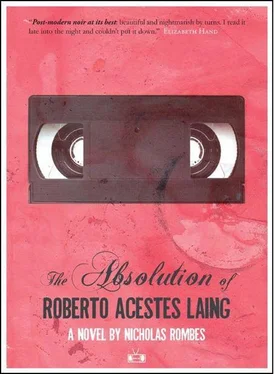
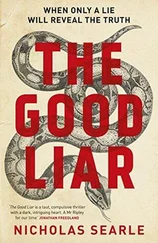
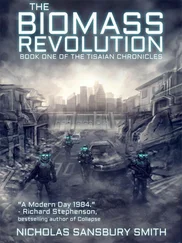



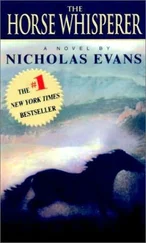
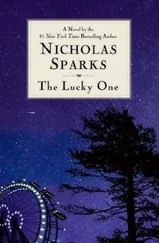




![Nicholas Timmins - The Five Giants [New Edition] - A Biography of the Welfare State](/books/701739/nicholas-timmins-the-five-giants-new-edition-a-thumb.webp)